Privatization vs. The People
A snapshot from the future: You drive your kids to school or go to work, the hospital or a movie and you are charged for every mile of road you use through an EZ Pass. The road has been developed and maintained by a bond funded by wealthy investors at very high interest rates. The investors are the first to be paid because the city needs to keep a strong bond rating in order to borrow more from investors.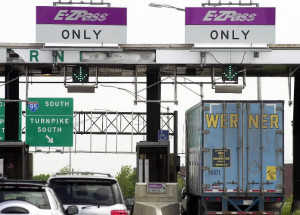

Bruce Dixon, editor of Black Agenda Report, writes, in “EZ Pass — Tip Of The Road Privatization Vacuum Cleaner,” that trade associations and lobby groups are working toward ‘pay-to-use’ roads in the near future. Roads will be privatized or become public-private partnerships. If people are unable to pay, they cannot use the roads or may even lose their license. Dixon points out that, under the Obama administration, toll lanes were allowed on more existing highways.
This is the essence of privatization today: turn a public good into a profit center for Wall Street. US economic policy has created a wealth class that is grotesquely wealthy and under-taxed so it has the money that the government needs to provide public services. This forces the government to borrow money from or sell a public service to the privateers or to create public-private partnerships (disguised corporate welfare and crony capitalism) in order to provide essential services.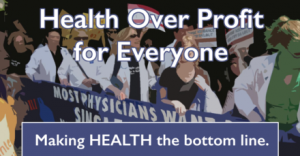

This model was applied during the Obama years on a mega-level to health care. Rather than treating universal health care as a public service and expanding and improving Medicare to cover everyone, Obama worked with corrupt healthcare profiteers – the insurance and pharmaceutical industries and health care investors – for a law that benefited them. We described Obamacare as “the biggest insurance scam in history” in 2013, predicting it would lead to increased premiums, out-of-pocket costs and deductibles and decreased coverage while making the medical industry wealthy. This is exactly what happened.
The Market Rules While Public Services Are Cut
Under Obama and previous presidents, the market was king while public services were diminished or disappeared. Obama is infamous for his triad of trade agreements: the Trans-Pacific Partnership, the Trans-Atlantic Trade and Investment Partnership and the Trade in Services Agreement. The common theme of all three was privatization by granting greater power to corporations, making it impossible to regulate them, and turning public services into profit centers for big business.
The TPP and TTIP both seem to be dead. It is unclear what the fate of TiSA will be under President Trump, but we must not allow it to be completed. Last week Trump said he wants no more multi-country trade deals and will pursue one-on-one negotiations in which the US can demand terms from a smaller country and easily walk away if the country refuses them.
TiSA is a grave danger. It is an agreement of 52 nations (including all of Europe). From numerous leaks we knowthat the thrust of TiSA is privatization of all services. Services are 80 percent of the US economy and include the postal service, education, health care, etc. TiSA creates a one-way street to privatization with incentives to push public services to be privatized. Once this is done, they cannot return to the public sphere. Recent leaks show that TiSA negotiators are having problems, but if they make compromises, TiSA may still survive.
A major area in the US where privatization has been destroying a critical public service under the last four presidents is education. The damage is expected to increase under the extremist policies of Secretary DeVos, although she is igniting protest (see here and here), which may obstruct her success.
Education activist, Morna McDermott, writes about the path to privatize education in “The Long Game: Where Art Thou Public Education?”. She points to the extremist “Choices in Education Act,” which would open the flood gates of privatization schemes like vouchers and charters, but she also points out that the Democrat’s answer to No Child Left Behind, The Every Student Succeeds Act (ESSA), does the same.
 Education ‘deform’ is rooted in the lesser-evilism of the two-party problem of the United States. While both parties clothe their deforms in nice-sounding labels, the reality is that both parties are privatizing education so that big profits can be made off of school budgets while students suffer from a deteriorating education system. The privatizers can afford the best Madison Avenue propagandists available. In reality, phrases like ‘education choice’ have never served the disadvantaged but instead play on people’s desperation and have racist roots.
Education ‘deform’ is rooted in the lesser-evilism of the two-party problem of the United States. While both parties clothe their deforms in nice-sounding labels, the reality is that both parties are privatizing education so that big profits can be made off of school budgets while students suffer from a deteriorating education system. The privatizers can afford the best Madison Avenue propagandists available. In reality, phrases like ‘education choice’ have never served the disadvantaged but instead play on people’s desperation and have racist roots.
In Baltimore, we may be seeing the end of public education through the starvation of public schools. The public schools currently have a $130 million shortfall, which is likely to mean firing 1,000 educators. Not only will this devastate Baltimore schools, it will undermine the Baltimore economy. When a public budget is starved, people get desperate, including parents, teachers, students and residents; and desperation is an opportunity for privatizers to come in and “save the day.” It is a disguise for the privatization, profiteering and destruction of public education. Adding to the concerns is that Baltimore “School Choice” advocate Jason Botel is now the second in command under DeVos. Will Baltimore be an experiment for full privatization of public schools?
This week the Trump administration moved backward on the issue of private prisons. Obama had taken initial steps to stop the use of private prisons, but Attorney General Sessions withdrew his order. Private prisons treat inmates poorly, whether it is the quality of food or health care, and require high levels of occupancy, which encourages more prison sentences.
Another problem with privatization is lack of accountability. Corporations often skirt regulations because they know that there aren’t enough regulators to enforce the rules and that even if they are caught, they only have to pay a fine. Their lobbyists work to weaken or stop regulations to protect the environment, workers or consumers because they interfere with profits. Trump’s cabinet consists of people who have been appointed to federal agencies that they have been critical of or want to see destroyed. And regulations are being repealed, which will lead to expensive environmental and other types of damage.
 The Trump administration has moved forward on the Dakota Access Pipeline and the Keystone Pipeline without environmental reviews. If one pipeline explodes or has a significant leak, the cost in damage to water, land and air will be massive. Cutting corners for profit will almost assuredly cost the government more money in the future.
The Trump administration has moved forward on the Dakota Access Pipeline and the Keystone Pipeline without environmental reviews. If one pipeline explodes or has a significant leak, the cost in damage to water, land and air will be massive. Cutting corners for profit will almost assuredly cost the government more money in the future.
The bottom line on privatization is well described in an article on public-private partnerships by Pete Dolack. He points out that we can expect to see a lot more public-private partnerships under Trump, especially for his infrastructure plans. This is just another form of crony capitalism which will result in public money going to the wealthiest investors. Trump will cut taxes on the wealthiest and build infrastructure with private dollars, meaning profit as well as tax credits go to investors, not the public. Dolack writes:
“The contractor, of course, expects a profit from the arrangement. The government doesn’t — and thus corporate expectation of profits requires that revenues be increased and expenses must be cut. Less services and fewer employees means more profit for the contractor, and because the contractor is a private enterprise there’s no longer public accountability.
“Public-private partnerships are nothing more than a variation on straightforward schemes to sell off public assets below cost, with working people having to pay more for reduced quality of service.”
What Is the Alternative?
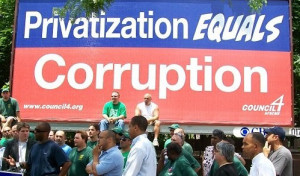 There are alternatives to privatization, de-regulation and other policies that funnel tax dollars and profits to the wealthy. Author John Boik urges us to look at how we create “an economy of meaning,” which begins with a rarely asked question: What economic system designs, out of all conceivable ones, might be among the best at helping us meet real needs? This question expands our thinking and creativity about the economy. It is not limited to capitalism vs. socialism. It is not just about creating jobs, but it is about creating jobs people want to do. By making well-being central to the economy, new approaches will be tried and, if they work, expanded. The current economy does not work for most people. As we re-think the economy, the centrality of well-being is a good foundation.
There are alternatives to privatization, de-regulation and other policies that funnel tax dollars and profits to the wealthy. Author John Boik urges us to look at how we create “an economy of meaning,” which begins with a rarely asked question: What economic system designs, out of all conceivable ones, might be among the best at helping us meet real needs? This question expands our thinking and creativity about the economy. It is not limited to capitalism vs. socialism. It is not just about creating jobs, but it is about creating jobs people want to do. By making well-being central to the economy, new approaches will be tried and, if they work, expanded. The current economy does not work for most people. As we re-think the economy, the centrality of well-being is a good foundation.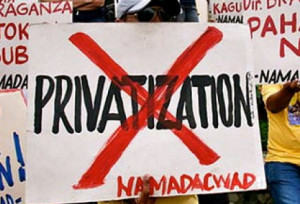 In a chapter for the book “Moving Beyond Capitalism“, we suggested the commons as the antidote to predatory capitalism. Concentrated wealth is derived by taking from the commons for personal gain in an undemocratic way. Public goods, lands and services are part of the commons that we should be sharing. Doing so would reverse the wealth divide and build our mutual prosperity, e.g. all should have equity in healthcare, access to the Internet and high quality education. Further, organizing and governing the commons requires group decision-making, which will help to reinvent democracy.
In a chapter for the book “Moving Beyond Capitalism“, we suggested the commons as the antidote to predatory capitalism. Concentrated wealth is derived by taking from the commons for personal gain in an undemocratic way. Public goods, lands and services are part of the commons that we should be sharing. Doing so would reverse the wealth divide and build our mutual prosperity, e.g. all should have equity in healthcare, access to the Internet and high quality education. Further, organizing and governing the commons requires group decision-making, which will help to reinvent democracy.
These are times of radical change. We are in the midst of an evolution. The old world is one of concentrated economic power that creates inequality and corrupt, hierarchical governance to serve concentrated wealth through exploitation of people and planet. There is another way. We’ve reached a tipping point, as evidenced by the worldwide revolt through Occupy, the Arab Spring, the Indignados and other movements.
We can reverse the trend toward privatization and inequality by claiming the commons for our mutual prosperity. We can build a more just, sustainable and democratic world, a world based on the common good, in which people work together to solve common problems and create an equitable economy that betters the lives for all.
Over the past 20-some years, the discussion hasn't actually been about "equality" and an "economy for all." It remains firmly rooted in the false notion that our capitalism works so well that everyone is able to work, and there are jobs for all, therefore we only need to make some small "adjustments" to the system. Liberals go so far as to claim that raising wages for the working class will result in increased consumer demand, which will eventually address poverty via increased jobs -- a theory known as "trickle down economics." It doesn't work.
From FDR to Reagan, we had a system with obvious shortcomings. It was in a state of constant change because the economy (and the range of conditions that effect it) are in constant change. However, the US did achieve its height of wealth and productivity during this time. Aid, with education and skills training programs, enabled a huge number of people to work their way out of poverty. In the 1980s, the general public was "re-educated" about these issues, and if you look back, you'll see that what the middle class railed against was those measures that increased equality.


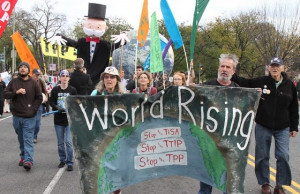



No comments:
Post a Comment
Anyone is welcome to use their voice here at FREEDOM OR ANARCHY,Campaign of Conscience.THERE IS NO JUSTICE IN AMERICA FOR THOSE WITH OUT MONEY if you seek real change and the truth the first best way is to use the power of the human voice and unite the world in a common cause our own survival I believe that to meet the challenges of our times, human beings will have to develop a greater sense of universal responsibility. Each of us must learn to work not just for oneself, ones own family or ones nation, but for the benefit of all humankind. Universal responsibility is the key to human survival. It is the best foundation for world peace,“Never be afraid to raise your voice for honesty and truth and compassion against injustice and lying and greed. If people all over the world...would do this, it would change the earth.” Love and Peace to you all stand free and your ground feed another if you can let us the free call it LAWFUL REBELLION standing for what is right